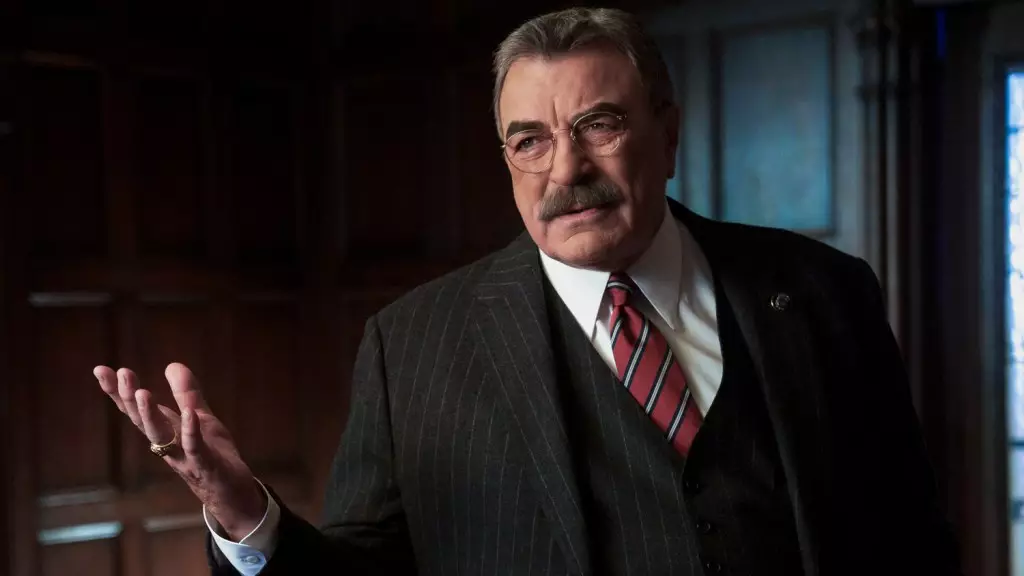The television landscape is ever-evolving, yet some shows manage to carve a niche that provides both comfort and nostalgia for viewers. One such series is “Blue Bloods,” which has delighted fans since its debut on CBS in 2010. However, the announcement of its cancellation has raised eyebrows and sparked conversations around the industry’s treatment of long-lasting shows. The iconic Tom Selleck, who has played the formidable NYPD police commissioner Frank Reagan for over fourteen seasons, expressed his dissatisfaction with the network’s decision to pull the plug, citing feelings of frustration and neglect from CBS.
In a candid interview with TV Insider, Selleck articulated his disappointment, stating that the series has been consistently undervalued, presumably given its robust performance metrics. With nearly 300 episodes aired and an impressive average of 8.1 million viewers in the recent broadcasting season, the show is certainly no stranger to success. Selleck’s frustration is palpable; despite the numbers, he feels that the show’s consistent achievements have not garnered the recognition it rightfully deserves. “It’s going to take a long time to sort all of this out,” he admitted, underscoring the emotional weight of the impending finale.
His reflections reveal an underlying theme prevalent in the entertainment industry: the paradox of critical acclaim versus actual recognition. For Selleck, it’s not merely about the end of a personal journey but rather a broader commentary on how audiences and networks sometimes fail to appreciate consistently high-quality content. The star’s assertion that the show was “always taken for granted” resonates deeply within an industry that often favors the new and flashy over the tried and true.
The decision-making process at CBS, as articulated by the network’s president Amy Reisenbach, underscores the necessity for change within programming. During a press conference that followed Selleck’s statements, she emphasized the importance of refreshing the network’s lineup, indicating that even successful shows must eventually conclude. Yet this rationale is met with skepticism from fans who argue that good viewership and loyal audiences should speak volumes in favor of maintaining a series.
Every show comes to an end, but the manner in which cancellations are communicated can significantly impact the involved cast and audience. “It’s important for us to refresh the schedule,” Reisbenbach noted, a statement that could be interpreted by fans as a lack of appreciation for shows that have stood the test of time.
With “Blue Bloods” concluding its run, the legacy it leaves behind cannot be overlooked. The series, which chronicles the trials and tribulations of a family deeply ingrained in the New York law enforcement community, has not only entertained millions but has offered a glimpse into the complexities of family dynamics and ethical dilemmas in policing. The Reagan family is emblematic of the struggles faced by those who serve and protect, and it has successfully merged personal stories with broader societal issues.
Moreover, Selleck’s portrayal of Frank Reagan stands as a testament to his enduring talent and versatility as an actor. His character has become synonymous with the values of honor, duty, and family, aspects that have resonated with many viewers throughout the years. The actor’s emotional turmoil over the series’ end reflects the attachment and enjoyment that both cast and audiences have cultivated over a decade.
The cancellation of “Blue Bloods” serves as a reminder of the precarious nature of success in television. Shows can thrive in ratings yet still face termination, leading to a call for better recognition and understanding of what audiences truly value. As Selleck poignantly observed, “If you were to say to the television network, ‘Here’s a show you can program in the worst time slot you got, and it is going to guarantee you winning Friday night for the next 15 years,’ it would be almost impossible to believe.”
In an industry that often prioritizes trends and new content over established hits, it is crucial to strike a balance. Shows that maintain consistency and depth deserve not only viewership but also respect and consideration from their networks. As fans bid farewell to “Blue Bloods,” they are also left pondering the future of quality programming and the unpredictable fate of beloved shows.
